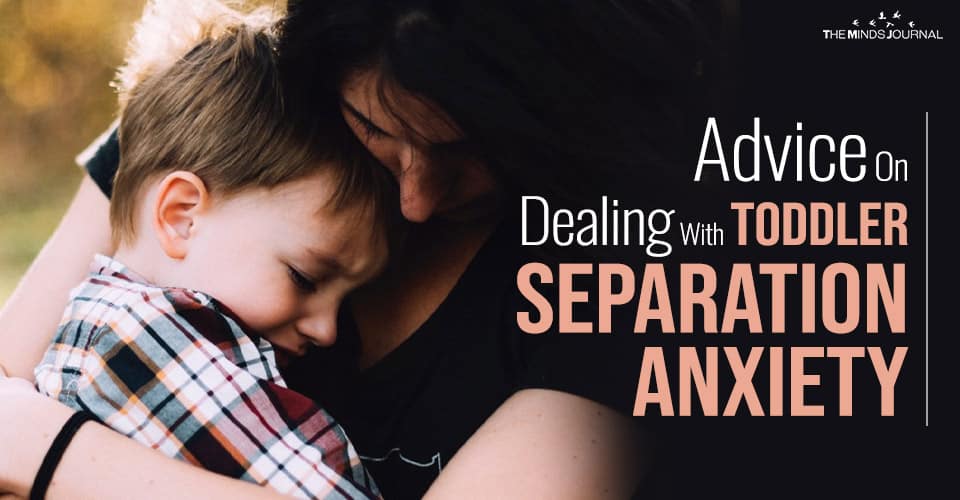Advice On Dealing With Toddler Separation Anxiety
Newborn babies are happy to get attention from just about anyone, even if they really like mom and dad the best. As kids get older though, they often form a stronger bond with their parents and may start crying whenever they sense they are about to be separated. In this article, I’ve detailed what toddler separation anxiety is, and offered up a few tips on how to deal with it.
Does Your Toddler Have Separation Anxiety?
Toddler separation anxiety can begin at any time between 8 months and 2 years of age. Essentially, you might notice that your toddler becomes extremely clingy, and begins to cry uncontrollably whenever you leave the house (or even the room for that matter).
Toddlers have a difficult time understanding the world, and also haven’t fully developed a sense of time. So, they often aren’t able to process the fact that you are leaving temporarily and will be coming back soon. Instead, they just know that someone they love if going away, and this causes a great deal of distress.
Read Anxiety In Children: 15 Calming Things You Can Say As A Parent
Helping Your Toddler With Separation Anxiety
Watching your child cry with despair whenever you have to part ways can be absolutely heartbreaking as a parent. It’s also not fun for your little one. So, finding ways to help your child cope with separation anxiety sooner rather than later is beneficial for everyone involved.
1. Form A Good Relationship With Your Childcare Provider
If you are going to be starting daycare or preschool, it can be a good idea to help your little one begin a relationship with their new care provider first. You can take your child to meet this person while you stay in the room so that they have a chance to start to form their own bond.
You should encourage your little one to play during these visits so they start making positive associations. Break out a few toys to help this process along. Maybe it means playing with an educational toddler activity table or mashing the keys on a small toddler piano. Not only are toys a great way to bond with a new care provider, but they also put your child in a great mood. If they’re having fun, they are less likely to get so upset when you leave.
2. Try Some Brief Separations
One of the best ways to help your toddler cope with separations is to start to reinforce the fact that you will always be reunited. It’s easiest for toddlers to grasp this concept if you keep separations brief in the beginning.
For example, you might take them to daycare or to a relative’s house and let them know you’ll be leaving for a short time. Say a quick goodbye, and then head out for a half an hour or so. By the time you get back, your little one will probably be having a fun time but they’ll still be happy to see you.
These short separations will help your toddler realize that parting ways aren’t such a big deal. That, in turn, will set the stage for spending longer periods of time apart.
Read 4 Most Common Symptoms Of Depression In Children
3. Create A Routine For Saying Goodbye
You never want to sneak away from your child. The surprise they will register once they realize you’re gone will make them very upset. It might also make them more clingy as they will constantly worry that you might disappear at any moment.
Instead, I suggest that you develop a goodbye routine so that your toddler knows then you’re going to leave. Your routine doesn’t need to be elaborate. In fact, it’s better if it’s something fairly simple. A quick hug and a peck on the cheek might just be perfect.
Is This Normal?
Separation anxiety is very common in young children, though it doesn’t always follow a linear path. Your child might not mind going to daycare every day until one day out of the blue when they really don’t want you to leave.
Often times, a change in routine can result in a change of behavior in your child. Maybe everything is going well until you take a family vacation. Then, all of a sudden, your little one can’t stand to be apart for even a few minutes.
Eventually, your child will outgrow separation anxiety. But, along the way, it’s often two steps forward and then one step back.
If you’re interested in reading more, check out this article on How To Deal With Separation Anxiety In Toddlers at Smart Parent Advice.










Leave a Reply